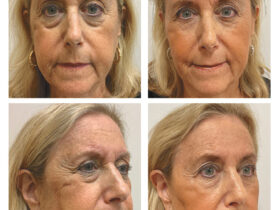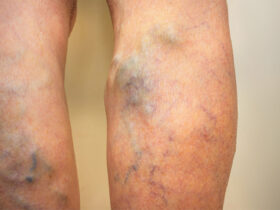By Tyrone Medina, MD
 Florida’s summer temperatures can be unforgiving, with heat indices often soaring well above 100 degrees Fahrenheit. As residents and visitors navigate the Sunshine State’s intense heat and humidity, understanding heat-related illnesses becomes crucial for staying safe and healthy. Heat exhaustion and heat stroke are serious medical conditions that can develop rapidly, but with proper knowledge and prevention strategies, they are entirely avoidable.
Florida’s summer temperatures can be unforgiving, with heat indices often soaring well above 100 degrees Fahrenheit. As residents and visitors navigate the Sunshine State’s intense heat and humidity, understanding heat-related illnesses becomes crucial for staying safe and healthy. Heat exhaustion and heat stroke are serious medical conditions that can develop rapidly, but with proper knowledge and prevention strategies, they are entirely avoidable.
Understanding Heat-Related Illnesses
Heat illness occurs when your body’s natural cooling system becomes overwhelmed by extreme temperatures. The human body typically maintains its core temperature around 98.6°F through sweating and increased blood flow to the skin. However, when ambient temperatures rise significantly, especially combined with high humidity levels common in Florida, these natural cooling mechanisms can fail.
Heat exhaustion represents the milder form of heat illness, characterized by heavy sweating, weakness, nausea, headache, and dizziness. While uncomfortable and concerning, heat exhaustion can typically be managed with immediate cooling measures and rest. However, if left untreated, it can rapidly progress to heat stroke.
Heat stroke is a life-threatening emergency that occurs when the body’s core temperature rises above 104°F. This condition can cause permanent organ damage or death if not treated immediately. Warning signs include altered mental state, confusion, agitation, hot and dry skin (though sweating may still occur), rapid pulse, and potentially loss of consciousness.
High-Risk Populations
Certain individuals face elevated risks for heat-related illnesses. Adults over 65 have reduced ability to regulate body temperature and may take medications that impair heat regulation. Young children, particularly infants, cannot regulate their body temperature as effectively as adults and may not communicate their discomfort clearly.
People with chronic medical conditions such as heart disease, diabetes, kidney disease, or respiratory conditions are more vulnerable to heat stress.
Additionally, individuals taking certain medications including diuretics, beta-blockers, or psychiatric medications may have impaired heat tolerance. Outdoor workers, athletes, and anyone engaging in strenuous physical activity during peak heat hours also face increased risk.
Prevention Strategies
Preventing heat illness requires proactive planning and awareness. Stay hydrated by drinking water regularly throughout the day, even before feeling thirsty. Avoid alcohol and excessive caffeine, which can contribute to dehydration. Plan outdoor activities during cooler parts of the day, typically before 10 AM or after 6 PM.
Dress appropriately in lightweight, loose-fitting, light-colored clothing that allows air circulation and reflects heat. Seek shade whenever possible and take frequent breaks in air-conditioned environments. Never leave children, elderly individuals, or pets in parked vehicles, even for short periods.
Recognize your personal limits and listen to your body’s warning signals. If you begin feeling dizzy, nauseous, or excessively fatigued, move to a cooler environment immediately and begin cooling measures.
Treatment and When to Seek Help
For heat exhaustion, immediately move to a cool, shaded area and remove excess clothing. Apply cool water to the skin, use fans if available, and sip cool fluids slowly. Rest with legs elevated and monitor symptoms closely.
Heat stroke requires immediate emergency medical attention. Call 911 immediately while beginning aggressive cooling measures. Remove clothing, apply ice packs to neck, armpits, and groin areas, and fan the person while applying cool water to their skin.
Professional Medical Care
Florida’s extreme heat conditions make access to quality medical care essential for residents and visitors alike. Whether you’re experiencing heat-related symptoms or need preventive care advice for high-risk conditions, having a trusted healthcare provider is invaluable.
Pinnacle Health Specialists is a state-of-the-art walk-in clinic on Goodlette-Frank Road. The staff includes a board-certified Emergency Room physician as well as board-certified physician assistants who combined have over 40+ years serving Collier County. Pinnacle Health Specialists provides services in English and Spanish including same-day urgent care, primary care and pre/post-travel assistance. The clinic can draw labs on-site and can arrange same day imaging.
We Promise
. To answer your call
. To make things easy
. To see you as soon as possible
. To give you the best care around
. To keep you in the loop regarding your care
800 Goodlette Rd. N, Ste 130
Naples, FL, 34102
239.649.3333
pinnaclespecialists.com
Monday-Friday 8:30AM – 5:00PM
Saturday 9:00AM – 2:00 PM Closed Sunday









